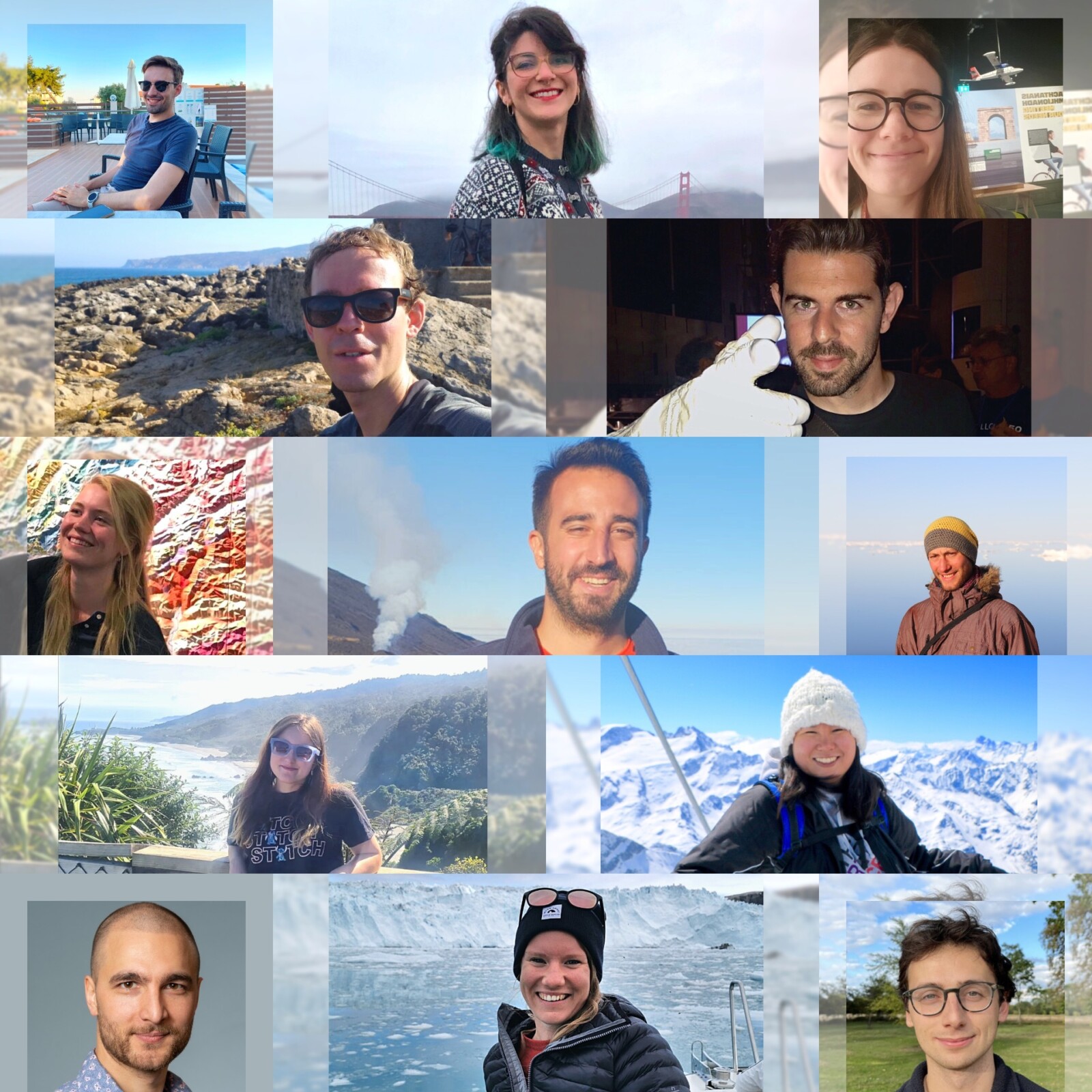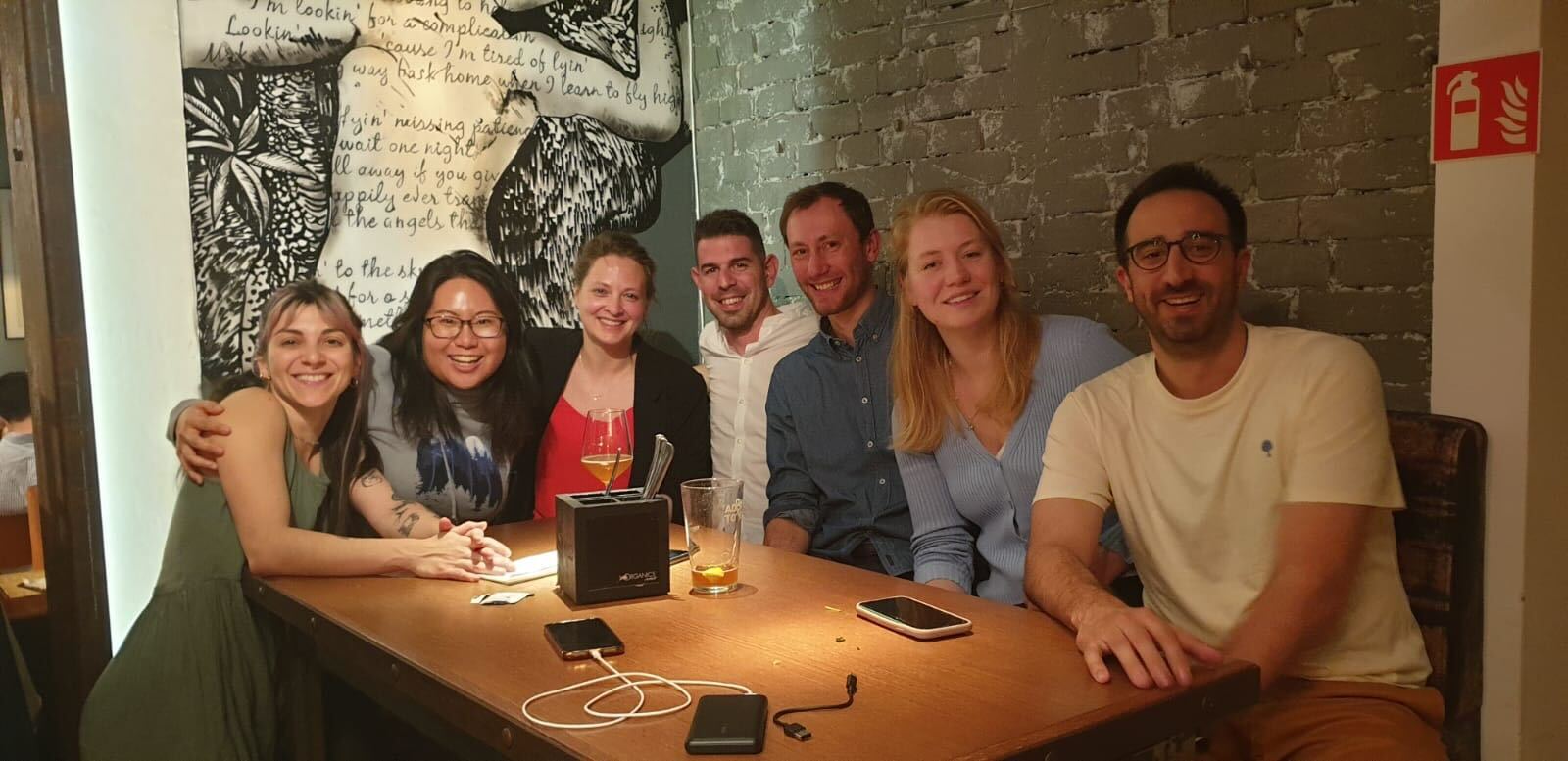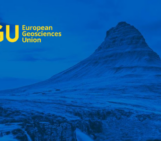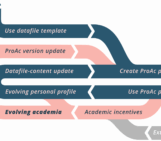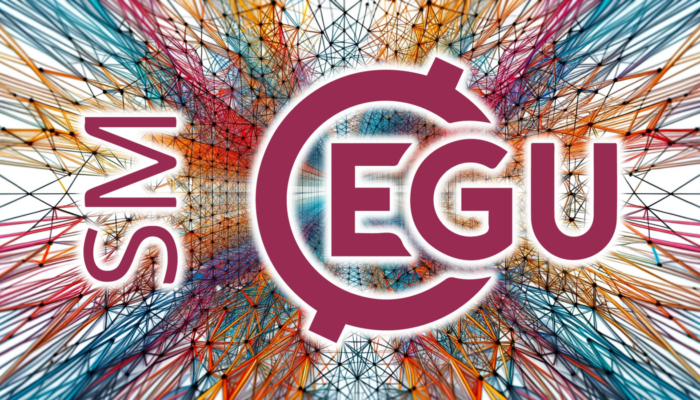
In this blog contribution, Foivos Karakostas, Research Fellow in Seismology at University College London and incoming ECS representative of the EGU Seismology Division, explains how to become a member of the EGU Seismology ECS representatives team, why it is worth it, and what exciting opportunities await your participation in it.
The journey of science is one of the most exciting adventures humans have embarked on. It’s all about people coming together to learn and discover. Seismology is a scientific field that highlights the necessity of networks in this quest for knowledge. So, how beneficial is a network of seismologists, and how necessary is such a network of emerging scientists? How important is everyone’s participation in it? I’m diving into these questions, highlighting how the EGU Seismology Division’s group for new scientists is pushing to be bigger, more inclusive and diverse.
“What will I gain from this?”
I would like to start developing my thoughts in this blog contribution by bringing to you a very common scenario: Whenever we invite people to join our Early Career Scientists’ group, they face the question “What will I gain from this?”. The answer to this question is not definitive, as this invitation is not an offer of gains, but an invitation to collaborate which leads to collective achievements. Therefore, I would like to reshape the framework of such a discussion.
1) Why do we need an Early Career Scientists group?
2) How do we want it to be and how do we want it to work?
For this reason, I would like to ask a pair of questions: 1) Why do we need an Early Career Scientists group? 2) How do we want it to be and how do we want it to work? Every one of us would have an answer to these questions, however, I am sure, in different ways. This is the true reason why we need everyone on board: in order to have a group that reflects the collective aspirations for the good of our community and serves the individual goals through improvement for all.
This is also what happens in reality; this is how our group works. The activities we engage in, the communication materials we produce, and the selection of topics that resonate with the ECS community are the fruits of our shared intellectual labour, our vibrant dialogues, and our dedicated efforts to create a space that truly represents the interests and ambitions of its members.
It is understood that in order to have a group that organises activities and communication in a manner that is beneficial to our community, the latter should be represented, in both numbers and diversity, in the group. This means that for anyone who wants such a group to have a meaningful contribution, joining is becoming much more than an option, I would describe it as a responsibility. Being interested and active in subjects that concern the future of our field is much more than a line in our CV. It is our ability to connect, collaborate, and contribute to a future where collective efforts become a culture. This process is beneficial not only for the scientific output, but also the evolution of our professional environment.
The emerging opportunities within the EGU structure
Up to this point, I developed some initial thoughts, which can be applied to any ESC group in every field or organisation. Now I need to elaborate on how this is applied within the frame of the European Geosciences Union, EGU. We are all familiar with EGU right from the beginning of our academic journey in Europe, as its flagship event, the General Assembly, is a staple in the academic year. However, the EGU is an organisation that does much more than hosting conferences. It is the most significant and influential organisation of geoscientists in Europe, with activities that extend from the offering of opportunities of professional development and skill acquisition to advocacy as the communal voice of geosciences in societal conversations. Within the 22 divisions of its structure, EGU is the organisation that represents the scientists in a series of fields that are in the center of the pressing challenges faced by our society today, ranging from the complexities of climate change to the frontiers of space exploration.
Advocating for and representing a scientific field across an entire continent undoubtedly demands considerable experience and interpersonal skills. Yet, the existence of ECS groups presents an accessible gateway for emerging scientists to engage. This includes MSc and PhD students, postdoctoral researchers, junior scientists, and newly appointed academics, like yourself and me, as well as our fellow members of these groups. Most importantly, it is not only a skill-offering opportunity, but a vivid organisation that depends on the contribution of all of us. This means that a very active part of a prestigious organisation is shaped by our ideas. By becoming an active member, it means that it will be shaped by your ideas, too. When you see this process in action it’s the moment that you realise the potential of your contribution.
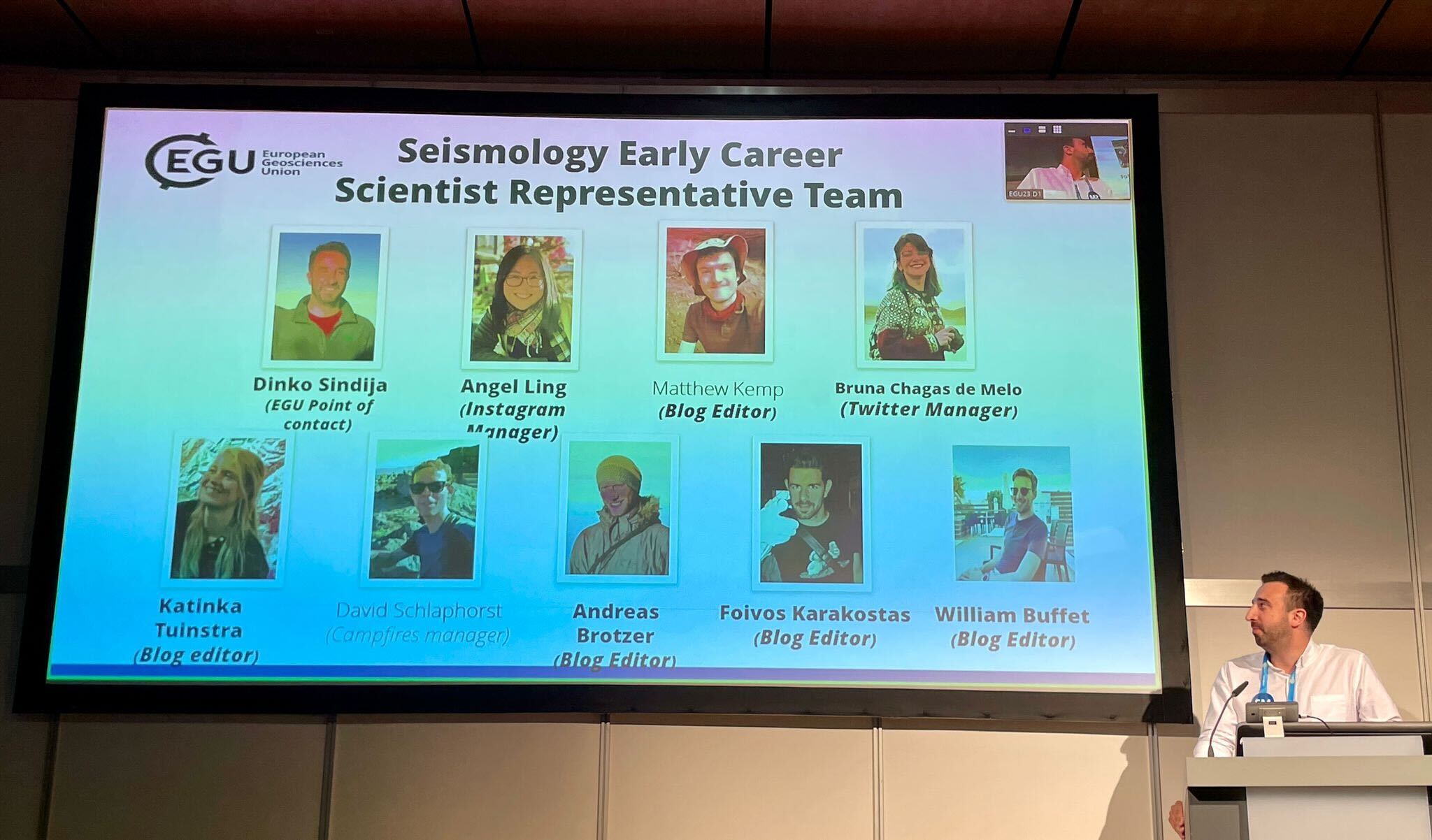
Dinko Sindija, the Seismology Early Career Representative, presents our team during the Division’s meeting, at the EGU23.
Joining such a broad organisation, however, is not only beneficial for the organisation and our field collectively, but I should admit that there is a solid personal gain: it offers the opportunity to cultivate a deeper understanding of our scientific community at large. Often, as we embark on our careers, our professional universe is circumscribed by the boundaries of our immediate institutions and the select few teams with whom we collaborate. Participating in an EGU ECS group, and interacting with peers from various countries, with their diverse academic traditions and cultural backgrounds, broadens our horizons significantly. We learn to communicate our research to a much wider audience, transcending the confines of our initial academic or corporate circles. In essence, this experience is akin to creating your own research network.
Moreover, becoming a part of an EGU ECS group serves as a powerful antidote to the isolation and pressure that can stem from not recognising the full scope of our community. Understanding that we are part of a larger community of researchers can alleviate the mental strain that often accompanies the early stages of a scientific career. It is a reminder that we are not alone in our efforts and that there is a vast network of fellow scientists who share our challenges and aspirations.
What do we do in our group?
So, how does our group practically implement the concepts I previously outlined? Here is a presentation of our Seismology Division, ECS group activities. Please remember, if you think that we should do more, you naturally add some reasons to join us!
As a group, we curate the Seismology Division’s blog – your current reading destination. We diligently report on recent seismic events, providing first-hand accounts from scientists in the affected regions. In a concerted effort to spotlight the work of our peers, we offer a platform to early career seismologists, allowing them to share their research in a comprehensible and relatable manner. Additionally, we maintain a job portal, a vital resource for career development at our professional stage. Beyond these tasks, we author articles on collectively chosen topics that we believe are essential for our community to engage with and understand, like this one!
We share our efforts on social media, where we manage accounts across multiple platforms, with the goal of reaching the broadest possible audience within our peer group. We channel our creativity into producing visually appealing content, crafting an engaging and attractive foundation for communication. This strategic approach not only amplifies our reach but also fosters a dynamic space for interaction and collaboration among early career seismologists.
In addition to our online engagement, we organise events that strengthen the fabric of our community. Notably, during the annual EGU General Assembly, we host social gatherings that provide a much-anticipated opportunity for us to connect in person. In fact, we have ambitions to organise more webinars and “campfires”-initiatives we are eager to realise.
Each year, we meticulously prepare the “Seismology 101” short course. This course is designed to distill the core principles of seismology for a diverse audience of geoscientists at the General Assembly, fostering a deeper understanding of our field amongst the broader scientific community. Through these endeavours, we not only share knowledge but also cultivate a supportive network for early career scientists to thrive within.
Furthermore, we engage in meaningful dialogue with our geoscience peers, tackling significant issues such as the conditions of our professional environments, the well-being of emerging researchers, and the contemporary challenges encountered in the pursuit of career fulfilment. These conversations are vital—they weave a fabric of camaraderie, deepen our collective understanding, and steer us through the evolving terrain of our professional lives.
“Is it worth my time?”
Now is the time when your perspectives can help shape the direction of our group’s discourse and the growth of our shared knowledge base. As you read this, I have no doubt that your mind is already alight with possibilities—questions you want to explore, projects you are eager to embark on, and discussions you are excited to lead or partake in. This very spark of inspiration is the foundation of why you should consider joining our group.
I understand that there might be one final hurdle to clear before you decide to join us. Given our packed schedules, whether we are buried in studies or navigating the demanding path of an academic career, a second common question is: “Is it worth my time?”. Consider this: a significant portion of our lives is devoted to work, whether in academia or industry. Isn’t it worth making that time count? By contributing to science, one of humanity’s most extraordinary pursuits, you are doing more than just a job—you are part of a greater quest. Engaging with the community can enrich your life and the lives of those around you. It is about making a meaningful impact, sharing the journey with peers, and enhancing the collective experience.
“How do I get involved?”
Therefore, we come to the final question, our concluding remark: “How do I get involved with the ECS group?”. It’s simple: just drop us a line at ecs-sm@egu.eu to get in touch with the Seismology Division’s early career representative, or send a message to any of our social media profiles. You are more than just welcome – you are needed! Come and see our next virtual meeting, pick the projects that excite you, or bring your own ideas to the table. We can’t wait to meet you and start working together!
Acknowledgement:
I would like to thank David Schlaphorst, Dinko Sindija, Angel Ling, and Katinka Tuinstra, members of the EGU Seismology ECS group, for their help in refining this article to more accurately capture our team’s spirit and vision.

